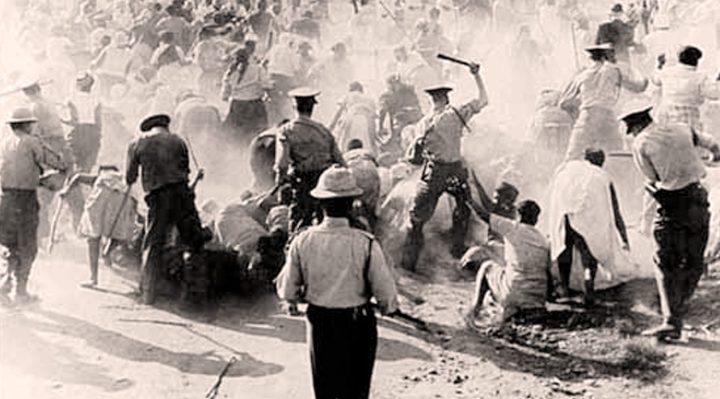HUMAN RIGHTS DAY OP-ED
Commemorate the Sharpeville massacre by breaking the cycle of racial injustice

Silence is indifference. We need everyone’s voice to break through the norms of silence and denial that help to maintain discrimination and oppression.
On 21 March 1960, men, women and children gathered in Sharpeville for a peaceful demonstration against apartheid “pass laws”. The police responded with gunfire, killing 69 people and injuring many more. This act of brutal racial injustice in South Africa prompted the United Nations General Assembly to adopt several measures to combat racism, including declaring the International Day for the Elimination of Racial Discrimination and adopting the International Convention on the Elimination of All Forms of Racial Discrimination on 21 December 1965.
Today in South Africa we commemorate the Sharpeville massacre as Human Rights Day. Globally, the day is observed as the International Day for the Elimination of Racial Discrimination.
While most countries in the world have ratified the International Convention, too many individuals, communities and societies still suffer from racial injustice and discrimination. The ongoing Covid-19 pandemic has also exacerbated existing racial inequalities globally, with the socioeconomic impact of the pandemic disproportionately affecting people of African descent.
South Africa has not been spared.
The legacy of apartheid and racism has only made things worse, as is evident in the inequalities we see today – from high levels of unemployment and poverty to gender-based violence, life expectancy, and spatial inequality, among other issues. These challenges are deeply anchored in South Africa’s past and have not been fully undone by the transition to a constitutional democracy.
In response to ongoing racially-inspired human rights violations, systematic racism, police brutality and violence against peaceful protests, last year the United Nations Human Rights Council called for an urgent debate which culminated in the release of the High Commissioner for Human Rights’ groundbreaking report on racial justice and equality. The report calls for an end to systemic racism and human rights violations through a four-point agenda:
- STEP UP: Stop denying and start dismantling;
- PURSUE JUSTICE: End impunity and build trust;
- LISTEN UP: People of African descent must be heard; and
- REDRESS: Confront past legacies, take special measures and deliver reparatory justice.
Included in the report are the experiences and stories of people who face racial discrimination, and human rights defenders working on their behalf to achieve racial justice. Through voices represented in these stories, the report challenges people in positions of influence across sectors to listen up and speak up against racism.
In light of the need to encourage people everywhere to strengthen and consolidate their voices against racism, to mobilise against all forms and manifestations of racial discrimination and ensure a safe environment for those who speak up, this year’s commemoration of the International Day will focus on the theme, “Voices for action against racism”.
Let’s listen to people who face racism
Silence is indifference. We need everyone’s voice to break through the norms of silence and denial that help to maintain discrimination and oppression. Calling out racist attitudes and behaviours in public and private spaces and seeking justice for those affected by racism are effective mechanisms for dismantling racism.
We must listen to the voices and stories of people who face racial discrimination and those advocating for restorative justice, including human rights defenders and civil society, and more importantly, act on their concerns.
Everyone must raise their voices to stand up against racism, build solidarity and lead change in their sphere of influence.
Let’s educate to empower
We all have a right to learn about human rights, including the history of racism, colonialism, apartheid and their legacies in the structural inequalities that still plague societies today. Whether prejudice and discrimination show up in the unequal impact of global challenges such as climate change and the economic effect of the pandemic, or racist hair rules in schools and unconscious racial bias in the workplace, these displays of racism are all rooted in this history of intolerance and injustice.
Knowledge and education can shine a light on the violations caused by discrimination and human rights tools can be used to fight against racial oppression. By learning about our shared humanity, the mistakes of the past, and addressing the root causes of racial bias, young people in particular can be more forthright in addressing manifestations of hatred.
Let’s ensure equal participation
The recent global mobilisation for racial justice has shown how systems that perpetuate exclusion and inequality can be easily disrupted when people raise their voices in unison. Importantly, to build back more equal, unified and resilient societies we must champion an intersectional approach, considering the confluence of race, gender, age, disability, and other vulnerabilities.
All sectors of society must be able to meaningfully and safely participate and be represented at all levels of decision-making processes. Those who stand up against racism must be protected and their contributions to society celebrated.
Let’s unite against racism
Diversity is a source of strength, never a threat. If we stand together in unity to defend the rights of others and to demand equal rights, South Africa can achieve the goal of a just, equal and sustainable society. Everyone, from all walks of life, must work together to build a world where racism has no place and equality, justice and dignity reign.
In all our diversity and irrespective of our differences, let’s stand together to fight and end racism.
#FightRacism DM/MC
Abigail Noko is the Regional Representative for Southern Africa from the Office of the United Nations High Commissioner for Human Rights.


















 Become an Insider
Become an Insider
The new injustice is corruption and economic policy that is not delivering work opportunities. The media and the government is only interested about who gets what top job and how they get it.